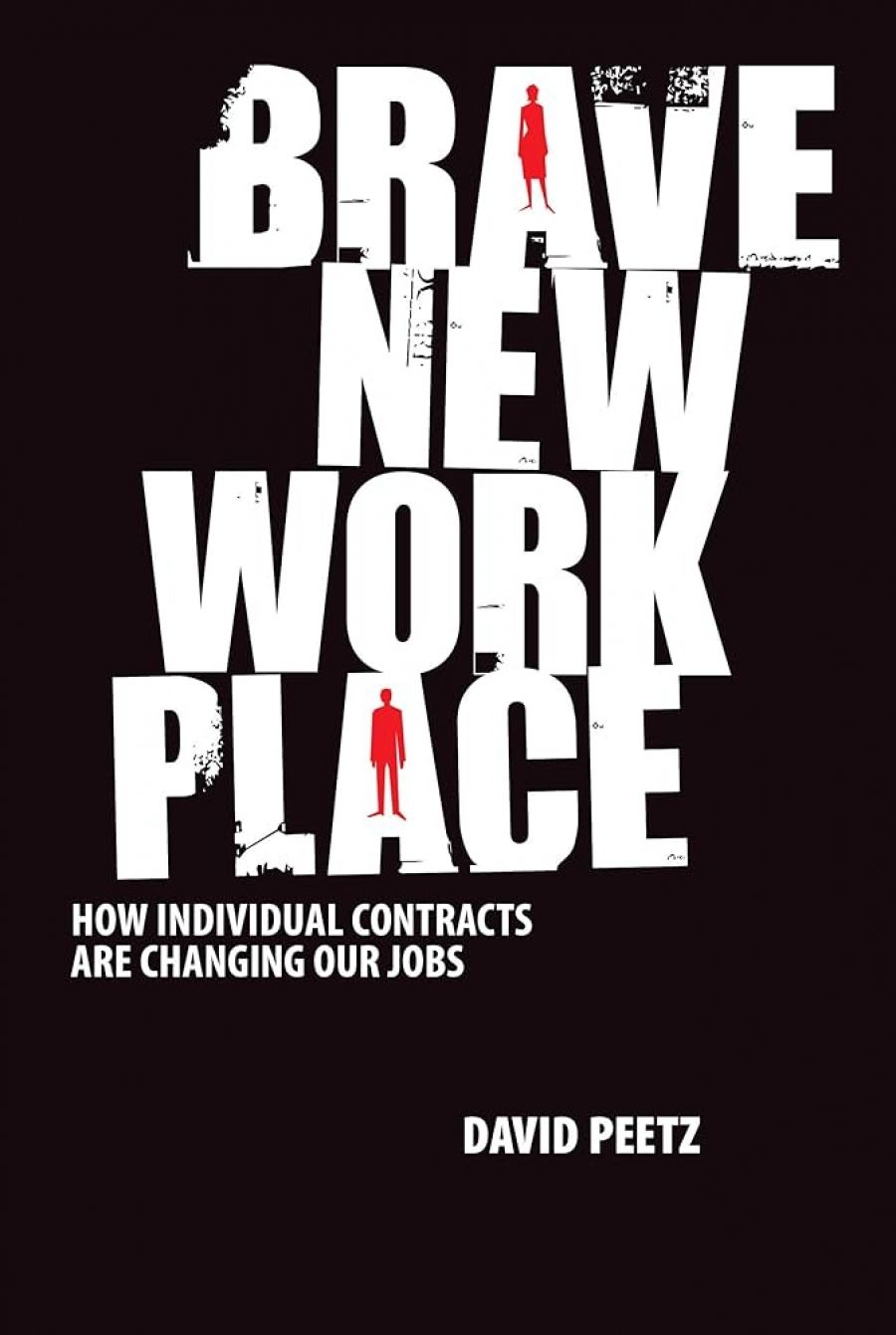
- Free Article: No
- Contents Category: Non-fiction
- Custom Article Title: Demolitionists
- Review Article: Yes
- Article Title: Demolitionists
- Online Only: No
- Custom Highlight Text:
Almost 100 years ago, Justice Higgins was asked to determine a ‘fair and reasonable wage’ for the average worker. In a landmark decision, Higgins declared that an unskilled labourer should receive a wage of seven shillings per day. This, he said, reflected the needs of an ordinary person living in ‘frugal comfort’ in a civilised community with the responsibilities of providing for his family. Higgins was explicit in setting this basic wage based on the needs of a worker, not the business organisation for whom he worked. ‘Fair and reasonable’ must also be something which the individual employee could not otherwise get through individual bargaining directly with employers. For, if it was, there would be no need for such regulation. Higgins’s decision shaped Australian wage regulation for the last century, and institutionalised the concept of collective regulation of workplace matters. The Australian Industrial Relations Commission thus became a ‘bedrock’ institution of Australian capitalism, civilising market forces and mitigating the adverse consequences for individuals of the uncertainties associated with them.
- Book 1 Title: Brave New Workplace
- Book 1 Subtitle: How individual contracts are changing our jobs
- Book 1 Biblio: Allen & Unwin, $29.95 pb, 272 pp
- Book 1 Cover Small (400 x 600):

- Book 1 Cover (800 x 1200):

The current federal government, however, has introduced successive reforms that amount to a demolition of collective regulation of industrial relations. This process has found full voice in the Work Choices legislation, which overturns the primacy of collective agreements, allows firms to undercut award wages and conditions, outlaws union rights we have taken for granted, and undermines collective forms of worker voice in the workplace. This excellent book by David Peetz seeks to provide the intelligent general reader with an insight into this workplace revolution, why it is likely to further undermine the quality of working life, and what might be a road map for rebuilding workplace institutions that adequately balance the interest of employees and business.
Understanding the competing explanations for why this revolution has occurred and what it is likely to achieve provide the starting point for his analysis. For some, Peetz notes, the brave new workplace reflects the harsh realities of Australia as a small economy dependent on the global economy. Economic competition from the developing economies of Asia gives Australia little choice but to pursue a radical overhaul of labour-market institutions. Alternatively, the drive for change is sometimes seen as a product of the ‘new economy’ sectors such as information technology and biotechnologies, which it is claimed have vastly different needs that cannot be accommodated by traditional regulation. Others have focused on the rise of neo-liberalism in public policy and the decline of alternative visions to meet emergent challenges. Some see the decline of collective institutions as a consequence of fragmenting social and individual identities, the triumph of consumerism over ‘workerism’ and the rejection of more traditional collectivist values that underpinned institutions such as unions and arbitration.
Peetz skilfully and systematically unpacks the bewildering array of facts and policy debates that have informed these developments and their impact on individual workers. The absence of real choice in Work Choices is just one of the ironies that Peetz explores. For instance, the publicity used to promote individual agreements over awards and collective agreements is supposed to allow both employers and employees to establish mutually agreeable arrangements customised to the individual. Yet the government agency established to promote individualised agreements, along with consultants profiting from the new arrangements and employers themselves, have all used templates and software packages to standardised arrangements. Individualisation does not constitute individualism – or an end to collectivism.
A central theme of this book is that current challenges of labour-market policy do not justify the wholesale de-institutionalisation and de-collectivisation of labour regulation. Peetz condemns the new régime as bad for the economy and not good for workers. He is not alone in this call, but this text provides one of the most cogent and intelligent critiques of the current reforms. Peetz is also one of the first to examine labour-market reform in the broader context of ‘labour rights as human rights’. While the usual connection between a rights agenda and labour relations is associated with the developing world, there is now a growing interest in evaluating the rights of labour in industrialised economies as human rights. Australia is not unique in this context. I found this part of the book the most innovative and interesting.
This book is more than just an academic critique of current directions in public policy, but, as it strays from its academic origins, the coherency of the book begins to falter. While Peetz commendably goes to great lengths to make many of the ideas more accessible to the average punter, the writing is dense and, at times, technical and inaccessible. Brave New Workplace is also a call for action to those interested in agitating for a different vision of the work-place. Having challenged the orthodoxy, Peetz sets about establishing a case for labour to reorganise and develop a new agenda for rebuilding labour-market regulation. Again, those seeking a detailed road to recovery may be disappointed. In the end, it is also hard to find hope in this book. There are few effective voices against the prevailing trend. Organised labour is in serious decline, and it is hard to see how it can reinvent itself in a way that captures the ‘hearts and minds’ of those who identify themselves through what they consume rather than what work they do. Labor politics seems equally ineffective, unable to find any means to puncture the conservative hold on Australian politics where it matters – federally.


Comments powered by CComment